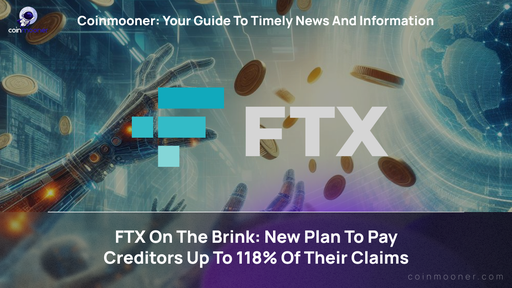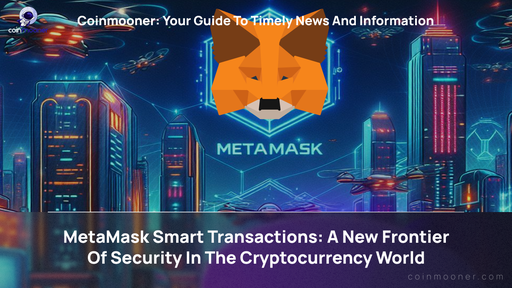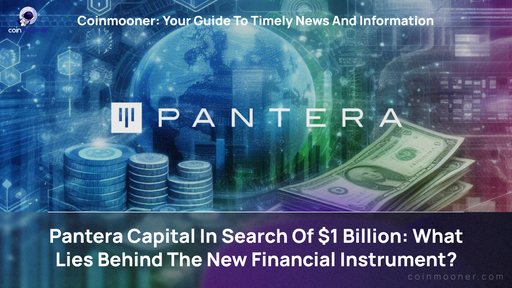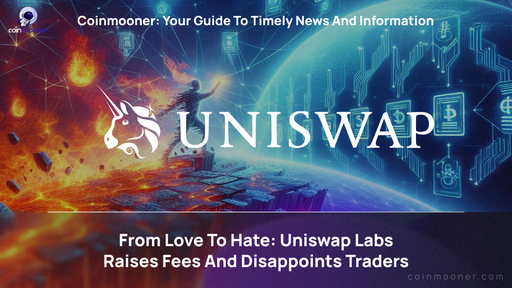Bitcoin and Beyond: The Origin Story of Altcoins and Their Creators


In today's world, almost everyone knows about cryptocurrencies, blockchain technology, and of course, the first one – Bitcoin. Many Web3 users are already aware that in 2008, a person or group of people using the pseudonym Satoshi Nakamoto published a file describing the protocol and operation principles of a peer-to-peer payment system. Electronic payments between parties are made without intermediaries and are irreversible – there's no mechanism to reverse a confirmed transaction, even in cases where a payment was sent by mistake or to a non-existent address, or when a transaction was signed with a private key that became known to others. Funds cannot be frozen, even temporarily, except by the owner of the private key or someone who has become aware of it.
In our latest news article, the Coinmooner team aims to immerse its readers in the world of alternative cryptocurrencies, uncovering the mysteries of their origins and revealing their creators. Unlike digital gold, many popular altcoins have real personalities and companies behind them, not hiding their contributions to the industry. They not only acknowledge their role but also actively develop Web3 technology, attracting new users and promoting innovation. Let's delve deeper and reveal a bit more information from our analysis about the most popular altcoins after Bitcoin and their creators.
ETHEREUM

Ethereum is more than just a cryptocurrency—it's a platform designed for building decentralized online services using blockchain technology. It operates through smart contracts and acts as a unified decentralized virtual machine. Vitalik Buterin came up with the idea in late 2013, and the network was launched on July 30, 2015. Unlike Bitcoin, Ethereum was created for electronic payments without intermediaries, aiming to be a decentralized medium of exchange and store of value. However, unlike the first cryptocurrency, Ethereum serves not only as a means of exchange but also as a platform for smart contracts and decentralized applications, expanding the capabilities of blockchain technology beyond simple transactions.
The name "Ethereum" was chosen by Vitalik Buterin after carefully analyzing a list of science fiction elements on Wikipedia. According to him: "I immediately felt that this name appealed to me the most out of all the alternatives I had seen; perhaps because it sounds beautiful and also contains the word 'ether,' referring to the hypothetical invisible medium permeating the universe and allowing light to travel."
In early 2014, the team founded the company Ethereum Switzerland GmbH in Switzerland, as the country's liberal laws regarding cryptocurrencies and the presence of a large number of potential clients justified the choice. In the same year, Vitalik Buterin officially presented the project at a conference in Miami.
Currently, according to CoinMarketCap, Ethereum cryptocurrency ranks second after Bitcoin in terms of total market capitalization, which amounts to $271,917,040,845.
TETHER

In the world of finance, there are many cryptocurrencies, but one stands out: Tether. Tether is a digital asset claimed by Tether Limited to be backed by 80% reserves in US dollars held in bank accounts or their equivalent. It acts as an anchor in the cryptocurrency market, providing stability amidst turbulence and fluctuations.
Unlike the volatile Bitcoin, Tether (USDT) is a stable currency tied to fiat currency like the US dollar, aiming to maintain a stable price. It's popular among traders on cryptocurrency exchanges who opt for it instead of traditional fiat deposits, thus facilitating cryptocurrency trading without the need for constant conversion to fiat.
The token originated in 2015 within Tether Limited. Soon, rumors circulated in the crypto community about the close connection between the company and the Bitfinex exchange, which was the first to integrate this token. Following the Paradise Papers investigation, this connection was confirmed. In the same year, Poloniex, a US-based cryptocurrency exchange, also adopted Tether.
In January 2018, Bloomberg reported that the Commodity Futures Trading Commission had subpoenaed Bitfinex and Tether Limited. The regulator doubted whether the 2.3 billion tokens of Tether were genuinely backed by the corresponding amount of dollars.
From January 2017 to August 2018, the total volume of issued Tether tokens surged from $10 million to around $2.4 billion. While at the beginning of 2018, about 10% of Bitcoin trading was done through this token, by mid-year, it had risen to 80%. However, Bitcoin's volatility remained unchanged. In August 2018, the Wall Street Journal published an article highlighting the lack of convincing evidence of Tether tokens being backed by US dollars.
As of now, according to CoinMarketCap, Tether ranks third in terms of overall market capitalization, which stands at $96,021,965,394.
DOGECOIN

DogeCoin is a cryptocurrency that started as a joke or parody of other cryptocurrencies, especially Bitcoin. It was created in December 2013 by developers Billy Markus and Jackson Palmer. Their idea was to make a cryptocurrency that was more accessible and friendly than serious alternatives.
The name "Doge" comes from a popular meme featuring a funny Shiba Inu dog with the caption "Doge" instead of "Dog." This meme was popular on the internet when the cryptocurrency was created and inspired the creators to name their cryptocurrency DogeCoin.
Bitcoin and Dogecoin differ in several key aspects. Bitcoin is a decentralized digital currency with a limited supply, aimed at providing secure and anonymous online transactions. Dogecoin, on the other hand, started as a joke and has no limit on the total number of coins. Dogecoin uses a scrypt algorithm for mining, while Bitcoin uses the SHA-256 algorithm. It's also worth noting that Dogecoin has fast block times and low transaction fees, making it more suitable for microtransactions and tips compared to Bitcoin.
Although DogeCoin started as a joke, it quickly gained popularity thanks to its active community and low transaction fees. It also received support from well-known figures such as Elon Musk, who has repeatedly mentioned it in his tweets.
In recent years, DogeCoin has attracted attention from investors due to its high volatility and unexpected price growth. While some see it as purely entertainment cryptocurrency, others see it as a potential investment opportunity.
Currently, according to CoinMarketCap, DogeCoin ranks tenth in terms of overall market capitalization, which is $11,483,813,454.

The Coinmooner team believes that understanding the features and potential of the most popular alternative coins in the world will help our readers use them more wisely within the Web3 framework. Knowing their origins will also make it easier for newcomers to enter the world of cryptocurrencies by helping them distinguish altcoins from Bitcoin. Undoubtedly, Bitcoin remains the most popular cryptocurrency due to its initial fame, widespread recognition, and investor trust. Its relative market stability is supported by a limited supply and extensive infrastructure facilitating its use. Bitcoin is also often seen as a digital store of value, an alternative to traditional currencies and investment instruments. This attracts both individual and institutional investors, strengthening its position as a cryptocurrency leader and making it more accessible to the masses.
Additionally, the Coinmooner team reminds its readers of the importance of verifying information from various sources and conducting their own analysis. We also urge you to be cautious when using tools in the Web3 sphere, continuously ensuring their security with up-to-date methods to minimize the risk of financial loss.










